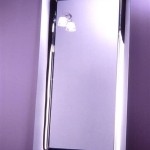Do All Samsung TVs Have Screen Mirroring?
Screen mirroring, the ability to wirelessly display the content of a smartphone, tablet, or computer on a television screen, has become a highly sought-after feature for consumers. While Samsung is a prominent manufacturer of smart TVs, the presence of screen mirroring capabilities across their entire product line is not a given. This article will explore the nuances of screen mirroring with Samsung TVs, addressing factors such as model year, operating system, and required technologies.
Operating System and Model Year Considerations
Samsung TVs utilize various operating systems, primarily Tizen and, in older models, other proprietary systems. Tizen, introduced in 2015, generally supports screen mirroring. However, TVs manufactured before the adoption of Tizen may or may not have this functionality. Whether a pre-Tizen Samsung TV supports screen mirroring depends heavily on the specific model and its features. Consulting the user manual or contacting Samsung support directly is recommended for definitive confirmation regarding older models.
Even among Tizen-powered TVs, differences can exist. Later versions of Tizen might offer enhanced screen mirroring features or improved compatibility with certain devices compared to earlier iterations. Therefore, while a newer Tizen TV is more likely to support screen mirroring, the specific capabilities may vary depending on the Tizen version installed.
Different Mirroring Technologies: Miracast and AirPlay
Samsung TVs predominantly use Miracast, a standard for wireless display connections, for screen mirroring with Android devices. Miracast allows direct device-to-device connections, eliminating the need for an intermediary network router. Most modern Android devices support Miracast, making it a generally accessible option for mirroring to compatible Samsung TVs. However, it's crucial to ensure both the TV and the sending device are Miracast-enabled for successful mirroring.
Apple's AirPlay, a similar technology for screen mirroring from Apple devices, has been gradually integrated into selected Samsung TV models. Starting in 2018, Samsung began incorporating AirPlay 2 support into some of its premium TVs. This allows users of iPhones, iPads, and Macs to wirelessly stream content to these compatible Samsung TVs. However, it’s important to note that AirPlay support is not universal across all Samsung TVs, and checking model specifications is essential.
Troubleshooting Common Screen Mirroring Issues
Even when a Samsung TV and the source device both support screen mirroring, connection problems can sometimes arise. Common issues include network connectivity problems, outdated software, or device incompatibility. If the TV and the device are on different networks, screen mirroring will likely fail. Ensuring both devices are connected to the same Wi-Fi network is crucial for establishing a connection. Outdated firmware on the TV or operating system software on the source device can also hinder compatibility. Keeping both the TV and the sending device updated to the latest software versions is often a necessary step for seamless screen mirroring.
Device compatibility can also cause problems. While Miracast is a standard, certain older devices might not implement it fully or correctly, leading to connectivity issues. Similarly, older Samsung TVs might not support the latest Miracast versions used by newer devices. In such instances, verifying device specifications and ensuring both the TV and the source device support compatible Miracast versions is essential.
Alternative Connection Methods: HDMI and Casting
For situations where screen mirroring is not available or problematic, alternative connection methods can offer effective solutions. A wired HDMI connection provides a reliable, high-quality link between a device and the TV. This offers a stable connection often preferred for content requiring minimal latency, such as gaming or video playback where timing is critical.
Casting, another widely used method, involves sending specific content from an app on a smartphone or other device directly to the TV. Many streaming apps, such as Netflix, YouTube, and Hulu, support casting directly to compatible smart TVs, including Samsung models. This method does not mirror the entire device screen but selectively streams the chosen content, offering a more targeted approach.
Choosing the right connection method depends on the specific requirements and the capabilities of the involved devices. While screen mirroring offers versatility, HDMI connections provide stability, and casting offers a focused streaming experience for supported apps. Understanding these options provides users with the flexibility to choose the most appropriate connection strategy for their needs.

What Is Screen Mirroring And How Do I Use It With My Samsung Tv Mobile Device

How To Enable Screen Mirroring On A Samsung Galaxy Device

Screen Mirroring To Your Samsung Tv

How To Mirror From Your Samsung Smartphone Tv New Zealand

Displaying Your Mobile Device Screen On The Tv Samsung Levant

Displaying Your Mobile Device Screen On The Tv Samsung Levant

Screen Mirroring To Your Samsung Tv

Screen Mirror To Samsung Tv Android Mac Ios Free App

Now You Can Stream Iphone To Samsung Smart Tvs Without Airplay Updated Apple Must

Updated How To Screen Mirror Samsung Tablet Tv








